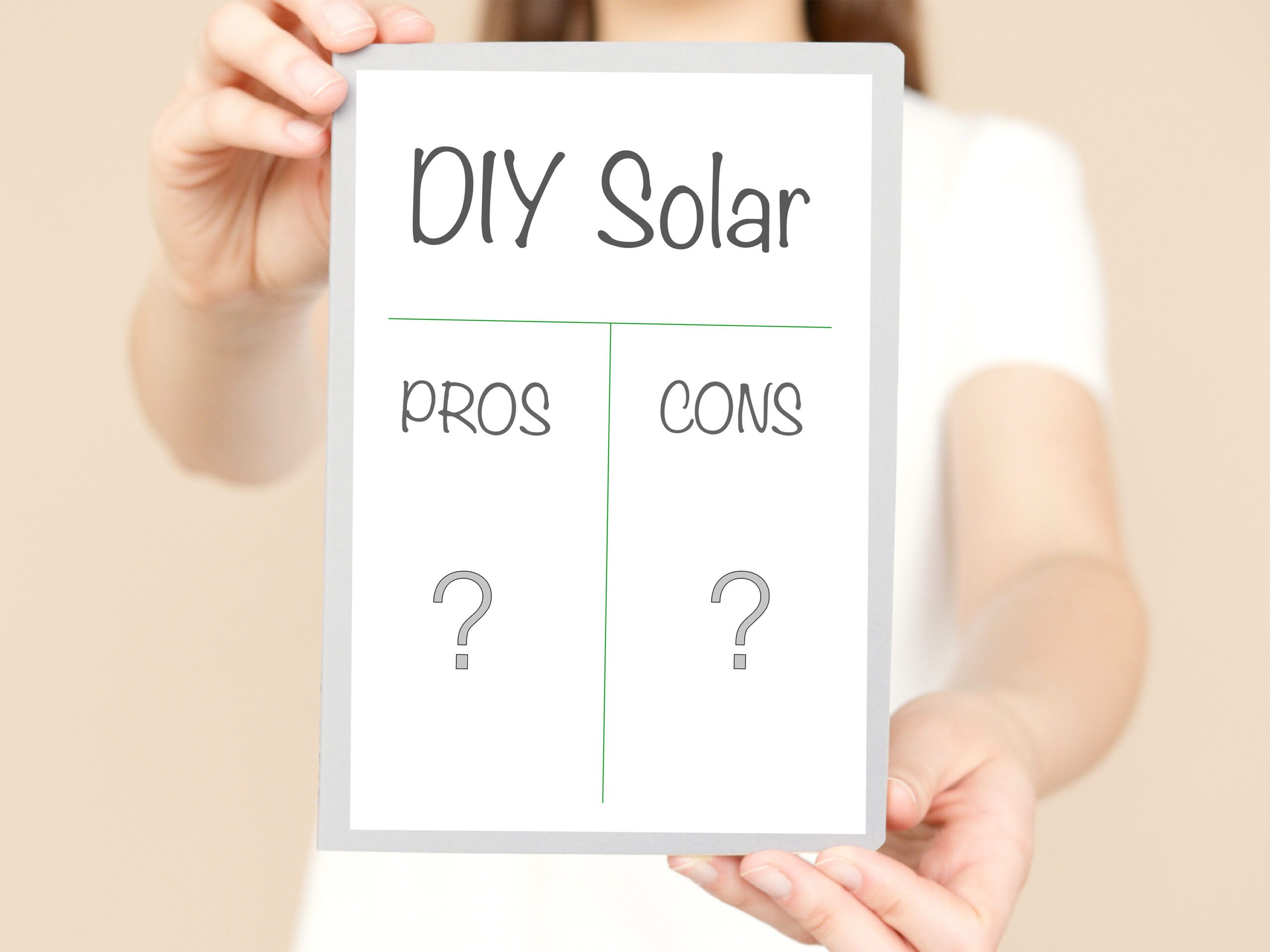“I can do it myself.” It’s a phrase repeated since childhood; a mantra for independent thinkers and DIYers. But is it the right mindset when it comes to installing a solar energy system? There are advantages and drawbacks to going solo for a solar installation. Make sure you’ve got the big picture before you decide for yourself.
The Draw of DIY
Every professional construction project comes with considerable added labor costs. DIY enthusiasts seeking to keep those costs in check often learn trade skills through online tutorials or experienced friends and family. Instead of putting up funds, they invest “sweat equity” into their project. In many cases, it can result in considerable savings. Because installing a system is a significant financial investment, many thrifty homeowners are looking for ways to make solar a more affordable endeavor. Design and installation costs for going solar typically amount to around 10% of the total expense. Building and installing solar panels on your own can seem like an attractive way to pocket that cost. But with solar energy systems, choosing whether to take on the project yourself can be a bit more complex than you think.
The Downside to DIY Solar
If you’re trying to power your whole house, doing it yourself may end up being a lot more expensive than you’re expecting. Professional solar installers have access to high-quality materials and equipment that will reliably generate energy for 20-25 years. In addition, certified installers often get warranties that include labor. Some offer labor warranties on their panels as well as the additional components, such as racking and inverters.
Professional installers also have extensive knowledge of financial incentives available in your area. They may find some that your own diligent research hasn’t uncovered, and potentially save you money.
Not to be overlooked, there is a lot of paperwork involved during solar installation. Various permits and applications need to be filled out and filed before your solar system starts generating power and savings for you. An experienced solar installer can help you navigate those and make sure they’re done right, and they’ve often factored in the cost of completing those into their estimate.
Solar kits are available for retail, but they are not the same caliber materials that installers get from their suppliers. Most DIY solar kits are designed for off-grid use. You cannot use them and stay connected to your public utility. This means you must also plan to install solar batteries for energy storage to use WiFi, your television, or even lights throughout your house anytime after sunset. Smart solar energy homeowners will factor the costs into their solar plans to install a battery to use as emergency backup during power outages. But if you want to have the same energy usage freedom during the evening that you have during daylight hours, you’ll need to install a multiple battery system which can add a significant cost to your solar investment. For most homeowners, staying connected to their utility makes the most financial sense.
When DIY Solar Makes Sense
On the other hand, DIY solar is a fantastic option for smaller projects. Solar panels are an excellent alternative power source for RVs, boats, camps, and backyard “man caves” and “she sheds.” Solar kits are available in various sizes for all sorts of mobile applications. Be aware that even small solar projects require a lot of research and comparison shopping. Make sure you determine the wattage necessary for your project to ensure you find the right kit for the job. The energy needs on this scale are generally low, so installing solar yourself can be a practical solution.
Professional Solar vs. DIY Solar
When it comes to solar system installation, there is a time and place for professionals and for DIYers. For homeowners looking to power their primary residence with solar energy, a professional installation that will keep them connected to the grid is the most economic solution. However, for smaller projects that require less power and more portable materials, DIY solar can be a relatively inexpensive and rewarding project.
At Synergy Power, our professional installation team can talk with you about your energy needs and help you determine the best solution for you.
Contact Us Now

